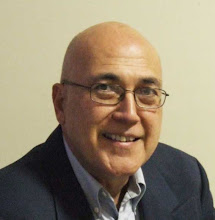A recent article in The Australian by Padriac Murphy notes that Dr. Caroline de Costa, author of the book “RU-486” stated that “says Mr Abbott told her during a meeting in November 2005 that he would rather be "knocked out" if he were a woman having an abortion.”
According to the article, she said that it was "disappointing to find how poorly informed Abbott was on the topic of medical abortion compared to many of his party's backbenchers,’ Dr De Costa writes in the book.’
“ ‘He also made the quite incredible remark that if he were having an abortion, he would like 'to be knocked out and have it done surgically'.
"Suppressing several possible rejoinders, I simply said that while some women would certainly prefer surgical abortion, others would like to have the option of medical abortion."
And, the article notes that “RU-486 is available widely overseas, can be taken orally and aborts a pregnancy without the need for invasive surgery.
“Dr de Costa and her north Queensland colleague Mike Carrette are the only practitioners in Australia authorised to prescribe the drug. Dr De Costa said RU-486 was a safe alternative to surgical abortion, and that it could be used to treat a variety of other medical complaints, including the possible prevention of some cancers, but large pharmaceutical companies had been discouraged from marketing the drug by anti-abortionists.
“She was eventually allowed to prescribe RU-486, or mifepristone, after a private members bill passed in February last year removed Mr Abbott's power to veto drugs approved by the Therapeutic Goods Administration.”
That article also said that she has used it to abort the pregnancies of 12 women who suffered conditions including thrombosis, severe depression, hypertension and eclampsia. She also said she was frustrated that RU-486 was not readily available, and had considered forming her own company to market the drug.
“Dr De Costa writes in her memoir that the point at which a fetus or embryo becomes a human was too complex an issue to be resolved by either scientists or theologians. ‘What I have seen is this: the fetus becomes a person when the woman decides it does.
“ ‘With wanted pregnancy, even if unplanned, this may be very early on. With unwanted pregnancy, this often becomes a difficult and deeply personal decision for the woman, but that is the decision she makes."
Martin Fitzgerald, who teaches Religion and Philosophy at Redfield College, comments:
“Dr de Costa tells us that the criterion which should decide when a fetus becomes a person is “when the woman decides it does”. Let’s hope that Dr de Costa in her memoir RU-486 explains how we are to justify to future generations that their mothers were the ones who decided whether they were persons or not and they were just the lucky ones whose mothers decided they were.”
If we take Dr de Costa's thinking on this, we really should be thankful to our mothers that we are all here. Pity the aborted, fetuses who were unlucky enough to have mothers who thought that they were not worthy of being persons.
Makes you think, doesn't it?
Tuesday, 7 August 2007
A thought on pregnancy: when does a fetus become a person?
Labels:
abortion,
catholic,
catholic church,
catholic faith,
catholic teaching,
fetus,
RU-486
Subscribe to:
Post Comments (Atom)

1 comment:
Good job Jack, although I would have just given a summary of the article and gone straight to the outrageous statement that Dr De Costa made. Then many people could have commented. It’s really scary that the definition of a person is being reduced to whether the mother is prepared to grant a fetus that status. When does the mother no longer have personhood - granting rights and the fetus is a person is a person in their own right? In addition, the issue gets a bit muddled with the definition of person. There is no doubt that the fetus is human. It is not right to take an innocent human life.
Post a Comment